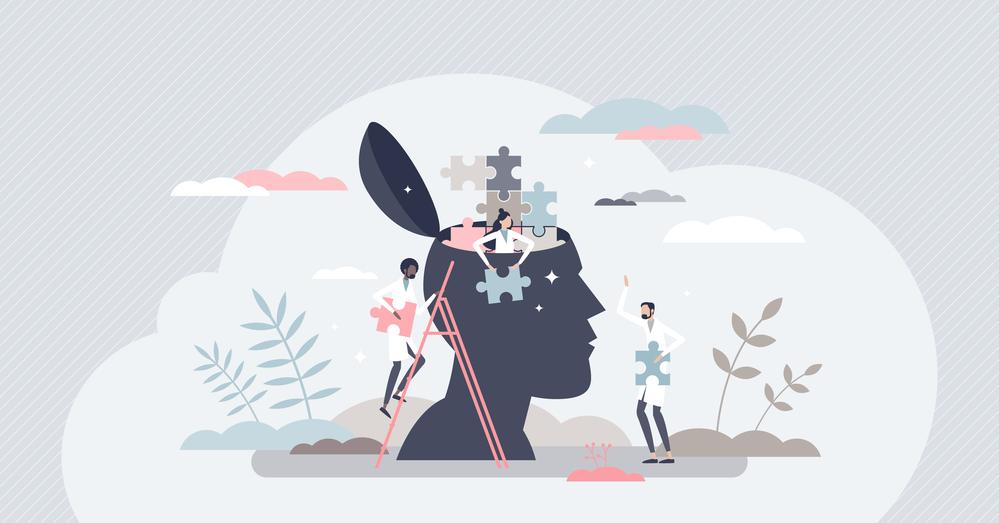As a BetterHelp affiliate, we receive compensation from BetterHelp if you purchase products or services through the links provided
Have you ever felt your heart race or your palms sweat for no apparent reason? Anxiety touches all of us at some point, as a whisper in the brain that can scream without warning. In this post, we’ll peel back the layers to reveal what fires up those anxious feelings inside your head, using facts you can relate to and solutions that truly work.
Dive in, and let’s unravel these mysteries together!
Understanding Anxiety Disorders
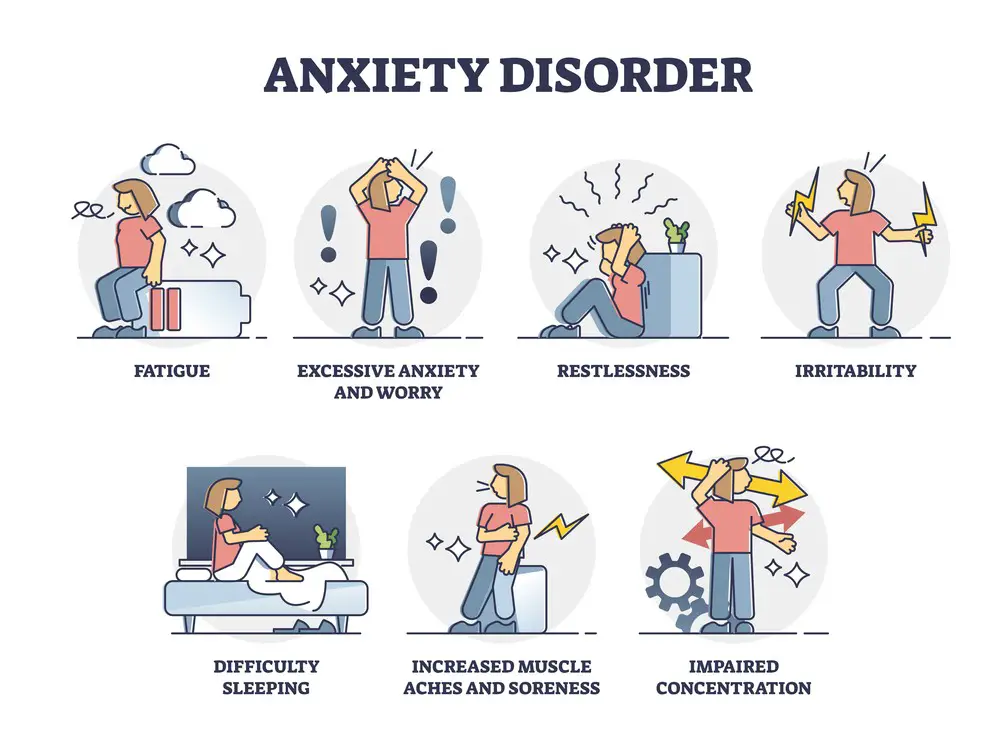 Anxiety disorders are a group of mental health conditions characterized by excessive fear and worry. They can disrupt daily life, making it hard for individuals to work, attend school, or maintain relationships.
Anxiety disorders are a group of mental health conditions characterized by excessive fear and worry. They can disrupt daily life, making it hard for individuals to work, attend school, or maintain relationships.
These disorders include panic disorder, social anxiety, and various phobias. Each type has its symptoms, but they all stem from an overwhelming sense of unease that doesn’t fade.
Getting to the root of these disorders involves examining various factors, including traumatic experiences and stress management issues. People with anxiety may have trouble processing their emotions appropriately, leading to persistent nervousness and tension.
Cognitive behavioral therapy often helps by changing negative thought patterns that fuel anxiety. It’s essential to recognize that while some aspects like genetics play a role in developing these psychiatric conditions, there’s no single cause – it’s typically a mix of neurological factors and life experiences.
Exploring the Neurological Factors of Anxiety
The complex workings of the brain uncover how neurological factors contribute to anxiety, illuminating the intricate dance between neurons and emotions that can lead to this often debilitating condition.
The Science Behind Anxiety
Anxiety often feels like a whirlwind of worry inside our heads, but it’s rooted in authentic biological processes. Our brain structure plays a crucial role; the amygdala, an alarm system for threats, can become hyperactive and cause us to feel unnecessary fear or anxiety.
Neurotransmitters also have a hand in this complex dance – the chemical messengers in our brains responsible for emotional regulation. When their levels are imbalanced, it can lead to feelings of apprehension or panic.
Genetics shape how susceptible we are to anxiety disorders – studies with twins reveal that genes account for about 30-40% of the variance. However, that’s not the whole story, as gut health influences our mental well-being too.
A fascinating connection exists between our digestive system and our brain function, known as the microbiota-gut-brain axis, which has shown strong links to both neuropsychiatric diseases and anxiety symptoms.
Understanding these components helps piece together why some individuals may experience anxiety more intensely than others due to different neurological factors at play.
Common Triggers for Anxiety
Many different situations and events can trigger anxiety. Common triggers include stressful situations at work or school, such as an upcoming deadline, presentation, or exam.
Significant life changes, either positive or negative, can also spark anxiety, like getting married, having a baby, getting divorced, moving, or changing jobs. For some people, financial stressors, health issues, or relationship problems lead to anxious feelings.
Social situations such as parties, work events, and even just going out in public are anxiety-inducing for those with social anxiety. Excess caffeine, poor sleep habits, drug use, and withdrawal from substances are also associated with heightened anxiety for specific individuals.
Ultimately, anxiety triggers are highly personal and can stem from almost anything someone finds stressful or unsettling. Recognizing one’s triggers is an essential step in learning to manage anxiety symptoms long-term through strategies like self-care, therapy, medication, or mindfulness techniques if the anxiety becomes overwhelming or disruptive.
Understanding the Brain-Body Connection
Your body reacts to your brain’s signals in real time, illustrating the intimate brain-body connection when dealing with anxiety. Think about how your heart races or palms get sweaty before a stressful event — that’s the work of the limbic system, particularly your amygdala and hypothalamus, preparing you for what it perceives as danger.
These regions communicate with each other to process emotions and coordinate hormonal responses that can affect everything from your breathing rate to muscle tension.
This continuous dialogue between mind and muscles means emotional turmoil can manifest physically, often leading to symptoms like headaches or exhaustion during periods of chronic stress.
As persistent stressors disrupt neuron function, this not only accentuates anxiety disorders but also impacts overall health.
Impact of Stress on Anxiety Levels
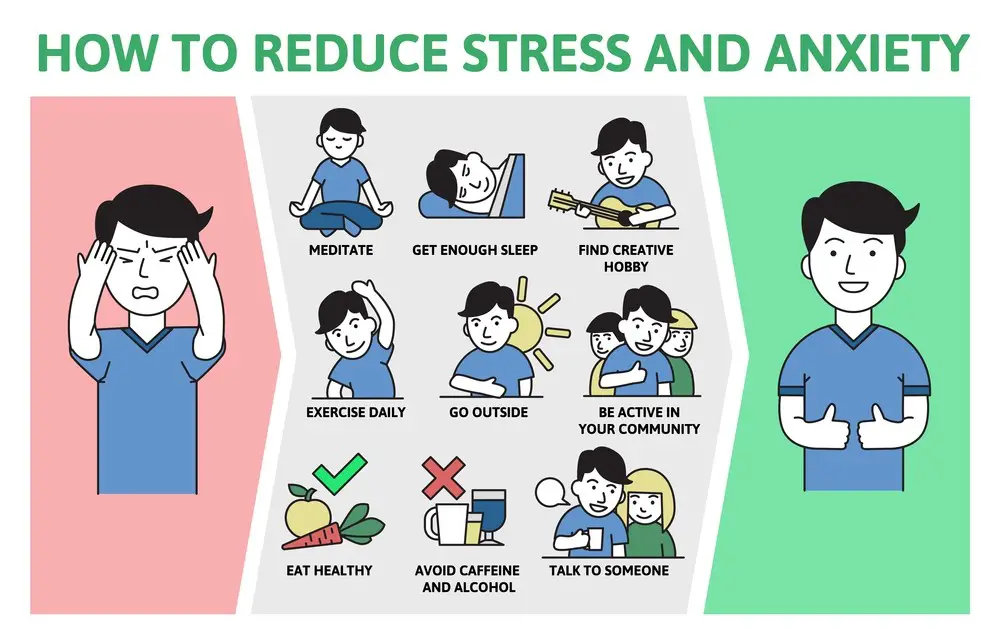 As we delve into the intricate workings of our brain-body synergy, it’s crucial to spotlight how stress can escalate anxiety levels. Stress acts as a significant risk factor for developing anxiety disorders by throwing off the balance in neural circuitry that governs mood and fear responses.
As we delve into the intricate workings of our brain-body synergy, it’s crucial to spotlight how stress can escalate anxiety levels. Stress acts as a significant risk factor for developing anxiety disorders by throwing off the balance in neural circuitry that governs mood and fear responses.
Heightened stress triggers more than just sweaty palms and a racing heart; it can amplify activity in parts of the brain that process emotions, making you more susceptible to anxiety.
These changes are often due to reduced inhibitory signaling within the brain, which usually helps with emotion regulation. Chronic exposure to stressful situations overwhelms these pathways, potentially leading to persistent feelings of unease or panic attacks.
This imbalance underscores why managing stress is paramount in preventing and reducing anxiety symptoms, paving the way toward healthier neural functioning and emotional resilience.
Coping Mechanisms for Brain Anxiety
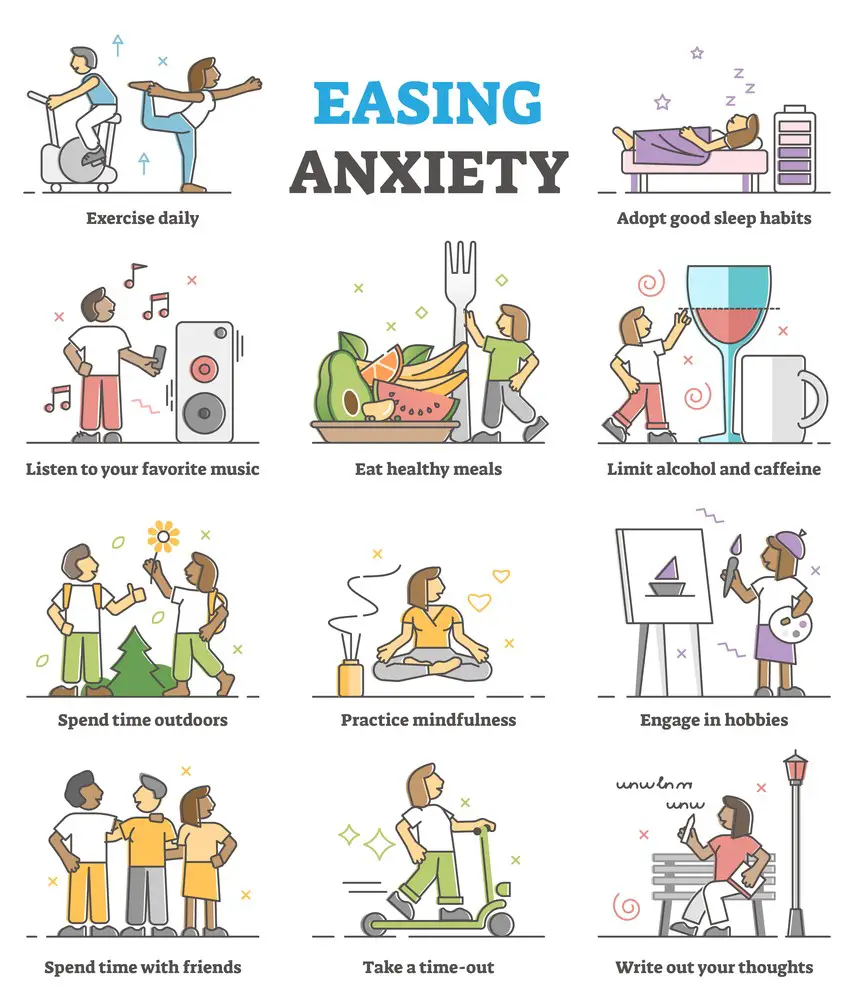 Anxiety that stems from our thoughts and worrisome mind can feel uncontrollable. However, managing brain or cognitive anxiety starts with identifying and acknowledging irrational fears and rumination.
Anxiety that stems from our thoughts and worrisome mind can feel uncontrollable. However, managing brain or cognitive anxiety starts with identifying and acknowledging irrational fears and rumination.
Simple deep breathing for a few minutes is an accessible first step to calming the mind. Progressively tensing and relaxing muscle groups redirect focus to the present physical sensations rather than the worrying thoughts.
Seeking social support provides perspective and reassurance against anxious overthinking. Talking through thought patterns with a trusted friend or mental health professional can overcome negative thought loops. Keeping an anxiety journal also helps track triggers and thought distortions. Writing these racing thoughts out can externalize and diffuse some of their power to allow more rational thinking.
Ultimately, keeping the anxious brain occupied with activities like puzzles, reading, crafting, or exercising prevents the mind from worrying excessively. Brain training through mindfulness meditation helps strengthen emotional regulation long-term as well.
A combination of physical, mental, and social self-care strategies can mitigate cognitive anxiety.
Breaking the Cycle of Anxious Thoughts
Getting trapped in cycles of anxious thoughts can be consuming, but there are ways to disrupt the pattern. The first step is recognizing when your mind starts spiraling in response to a stressor. Labeling the worry as unproductive can help you detach and shift gears.
Next, reframing the situation more positively or rationally can reduce intrusive thoughts. Focusing on facts and realistic solutions grounds you in the present. Asking “What is most likely to happen?” or “How would I advise a friend on this?” helps gain a reasonable perspective.
Finally, engaging in activities that keep your hands busy and mind distracted can short-circuit rumination. Creative outlets like art, music, writing, or puzzles require present-moment focus, keeping anxious what-if thoughts at bay. Movement is equally powerful, so exercise helps relieve mental tension.
Getting Rid of Anxiety
While eliminating anxiety may not be possible, understanding its roots in the brain can empower individuals to manage and reduce their symptoms effectively—stay tuned for insights into professional help and self-management techniques.
Seeking Professional Help for Anxiety
 Tackling anxiety head-on often requires more than just willpower; it calls for professional intervention. Psychologists and therapists bring expertise, guiding individuals through cognitive-behavioral therapy (CBT) to identify triggers and develop coping skills that align with personal needs.
Tackling anxiety head-on often requires more than just willpower; it calls for professional intervention. Psychologists and therapists bring expertise, guiding individuals through cognitive-behavioral therapy (CBT) to identify triggers and develop coping skills that align with personal needs.
This type of therapy has proven effective in managing the symptoms associated with anxiety disorders.
Support groups can be a helpful addition to individual counseling. They provide a sense of community and shared experiences for many people. Additionally, some cases may benefit from prescription medication as part of a comprehensive treatment plan that includes psychotherapy or other holistic approaches. This can help balance brain chemistry and alleviate mental distress.
Seeking professional help can be a game-changer in one’s struggle with anxiety, opening doors to new strategies for stress management and ultimately fostering better mental wellness.
Promoting Mental Wellness and Managing Anxiety
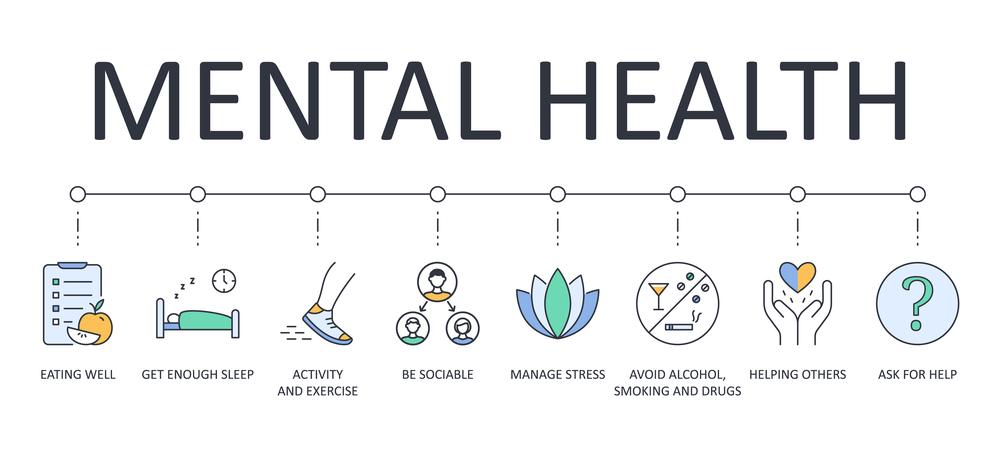 Anxiety disorders are the most common mental illness in the U.S. While medical treatment is sometimes necessary, daily habits and routines also play a huge role in mental health. Adopting lifestyle changes helps manage anxiety symptoms and promote overall wellness.
Anxiety disorders are the most common mental illness in the U.S. While medical treatment is sometimes necessary, daily habits and routines also play a huge role in mental health. Adopting lifestyle changes helps manage anxiety symptoms and promote overall wellness.
- First, developing healthy sleep habits provides the foundations for mental wellness. Most adults require 7-9 hours of sleep per night. Maintaining consistent bedtime and wake-up schedules, limiting blue light exposure at night, and creating a restful sleep environment facilitate deeper, less disrupted sleep critical for emotional regulation.
- Second, regular exercise is another science-backed strategy for easing anxiety. Both the mood benefits during and after physical activity and long-term neurological adaptations contribute to reduced anxiety with exercise. Aim for 30-60 minutes per day of heart-pumping activity.
- Third, social connection and community support mental wellness. Face-to-face social interaction triggers the release of oxytocin, which combats anxiety. Seeking counseling or joining support groups helps overcome isolation and develop healthy coping mechanisms.
- Fourth, proper nutrition aids the body in managing stress and anxiety. Complex carbohydrates, protein, fruits, vegetables, healthy fats, vitamins, minerals, and antioxidants give cells essential nutrients.
- Avoiding inflammatory foods, added sugars and excess caffeine improves resilience against anxiety as well. Implementing research-backed wellness strategies empowers people to thrive with mental health conditions.

Eight Benefits of Therapy and Counseling
Recognizing the Signs: When to Seek Help for Anxiety
Anxiety isn’t just a fleeting feeling; it can be a persistent and overwhelming force in our lives. But how do you know when it’s time to seek professional help? The key lies in recognizing sure signs. If your anxiety starts to interfere with daily tasks, relationships, or your overall well-being, it’s a clear indicator. Look for symptoms like constant worry, sleep disturbances, or physical manifestations like palpitations. Early intervention can make a significant difference, so listening to these warning signals is crucial.
Therapy as a Tool: Navigating Your Options
When it comes to managing anxiety, therapy is a powerful tool. Various forms, such as Cognitive Behavioral Therapy (CBT) and talk therapy, offer different approaches to tackling the root causes of anxiety. Therapy helps rewire the brain, teaching new, healthier responses to anxiety triggers. Finding the right therapist is a personal journey about connection and comfort. Don’t hesitate to shop around until you find someone who understands you.
Medication Management: Understanding When It’s Needed
Medications can be a practical part of treating anxiety, especially when combined with therapy. They can help regulate the chemical imbalances in the brain that contribute to anxiety symptoms. However, it’s crucial to understand that medication is not a one-size-fits-all solution. It often requires time to find the right type and dosage. Be aware of potential side effects and maintain an open dialogue with your healthcare provider to ensure the best treatment.
Setting Goals: The Roadmap to Overcoming Anxiety
Setting goals is a vital part of the anxiety treatment process. These goals provide a roadmap and range from short-term objectives, like trying a new coping strategy, to long-term aspirations, like maintaining steady relationships or career progression. Goals not only offer a sense of direction but also help in measuring progress. These goals should be realistic and achievable; setting the bar too high can lead to frustration and setbacks.
Tracking Your Journey: Recognizing and Celebrating Progress
Monitoring your progress in dealing with anxiety is essential. Methods like journaling or using mental health apps can provide insights into patterns and triggers, helping you and your therapist fine-tune your treatment plan. Celebrating small victories is crucial; it reinforces positive behavior and boosts morale. Whether mastering a new coping technique or just getting through a tough day, every step forward deserves recognition. Remember, recovery is a journey, not a race.
Conclusion
In our brains, a complex network of neurons and transmitters unfolds the story behind anxiety. Various factors entangle to spark this condition, from genetic predispositions to stress responses.
Exploring these neurological roots offers hope for better interventions and therapies. It reveals a path towards understanding how our inner workings can influence mental wellness.
We continue seeking knowledge about anxiety’s causes to master its impact on lives.
- How to Transform a Home’s Patio Space into a Relaxing Space - March 23, 2025
- 5 Strategies to Use a Cell Phone to Help Manage Your Stress - March 23, 2025
- 4 Ways to Use Measurements to Create a Relaxing Sleep Space - March 23, 2025
This site contains affiliate links to products. We will receive a commission for purchases made through these links.

